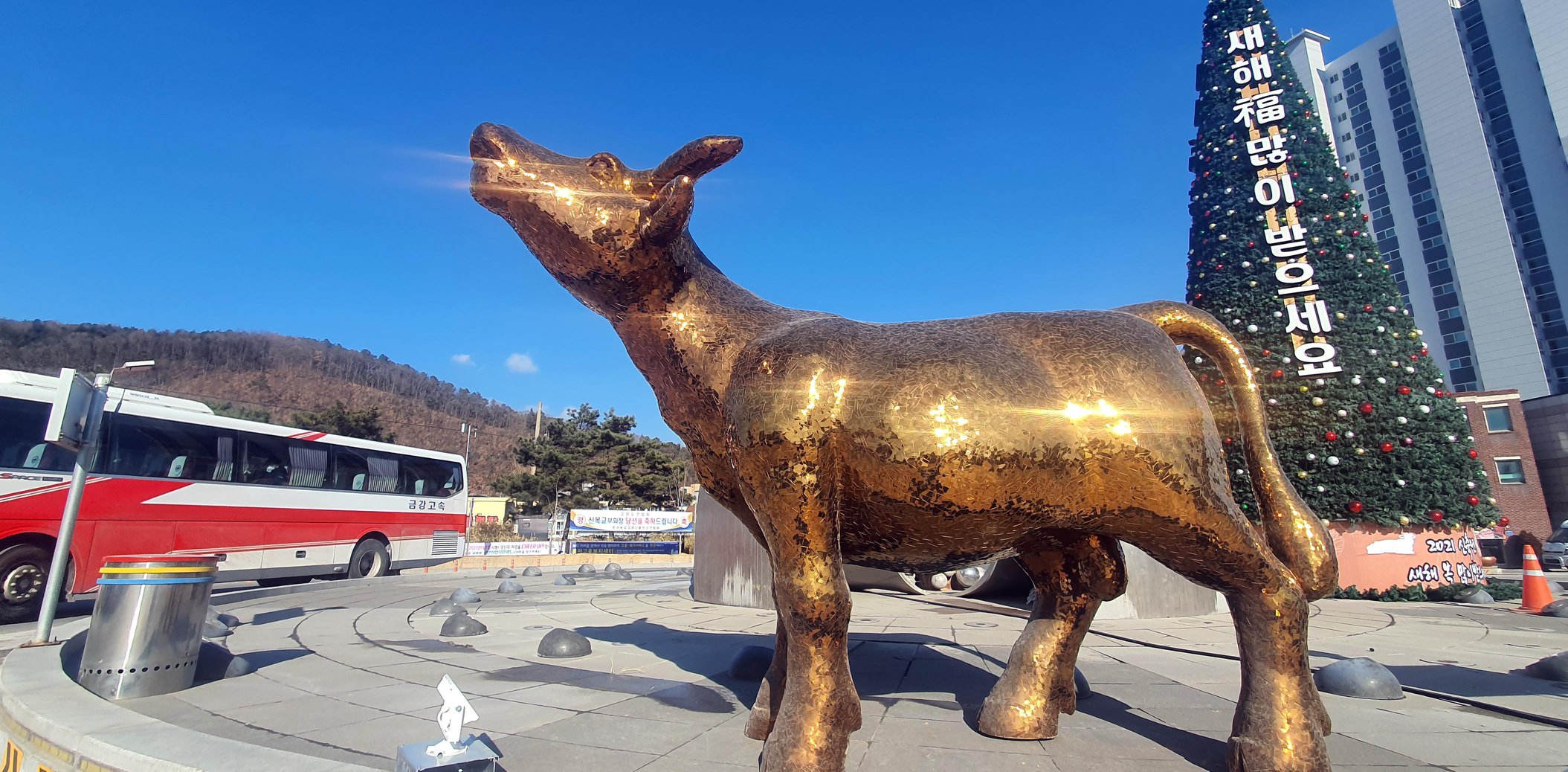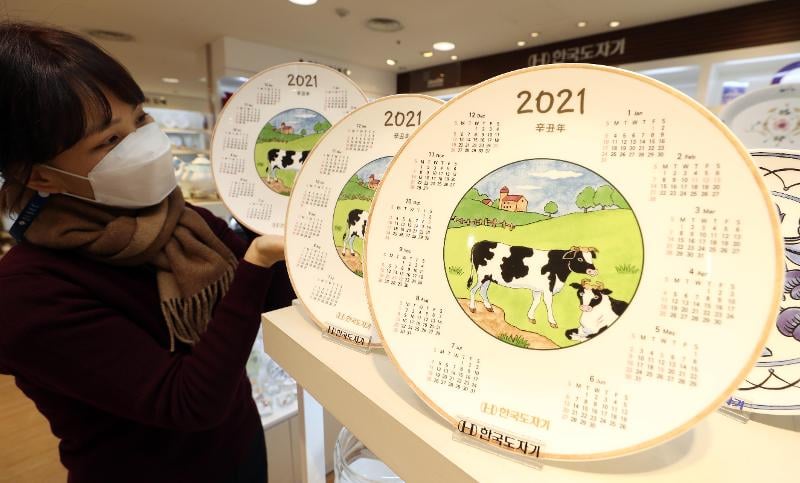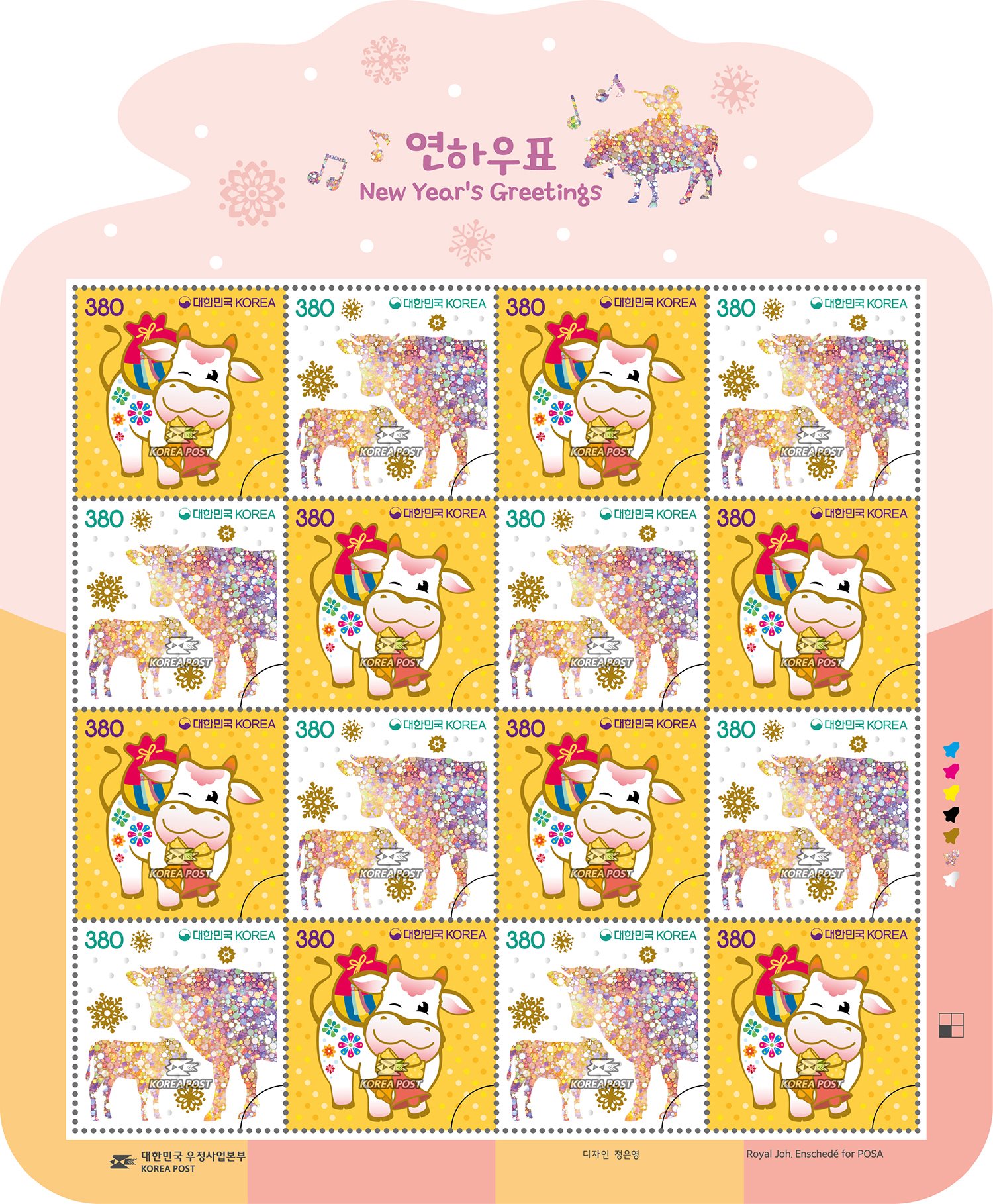- 한국어
- English
- 日本語
- 中文
- العربية
- Español
- Français
- Deutsch
- Pусский
- Tiếng Việt
- Indonesian
By Honorary Reporter Minnath Azeez from Sri Lanka
Photo = Yonhap News, Korean Stamp Society
In the Asian zodiac as observed by Korea, each year is represented by an animal based on the lunar calendar that repeats in a 12-year cycle. Legend has it that 12 animal guardian deities called the Sibijisin competed in a race to determine their rank: the rat, ox, tiger, rabbit, dragon, snake, horse, sheep, monkey, rooster, dog and pig.
Koreans in the past also considered these animals protectors against evil spirits and used the creatures to measure time. The day's 24 hours were divided into 12 division cycles and every two hours had their own representative animal. People believed that each animal was a guardian of its hour and kept them safe during the day. The animals were revered enough to have statues of them installed at royal sites.

2021 is the Year of the Ox under the Asian zodiac. (Yonhap News)
Though traditional superstition is waning in Korea, Koreans still consider the representative animal of each year when making choices in career, finance and marriage. A person born in a certain year at a certain time is believed to share the characteristics of the animal representing that year. Thus the zodiac remains part of Korean society.
2021 is the Year of the Ox. The animal represents diligence, honesty and patience, while its year is considered to be a time of peace and leisure. Those born in this year are known to be down to earth, methodical and passionate.

The ox represents diligence, honesty and patience. (Yonhap News)
The ox has a prominent place in Korean culture because of its use in agriculture. Farmers used them to plough fields and grow rice. The animal was also considered a "walking safe" since it could be sold whenever the owner needed a large sum of money. The ox's skin, horns and fat were used in daily life, and its meat, or hanwoo in Korean, remains a premium food even today. A Korean proverb says there is nothing to waste from an ox except for its yawn.
Buddhism considers the ox the essential goddess of human nature, and feng shui uses the shape of a lying ox or its stomach to determine the ideal housing site. And a folktale of an ox saving its owner from a tiger exemplifies the Confucian ideal of loyalty.

The Korea Post has issued stamps commemorating 2021 as the Year of the Ox. (Korean Stamp Society)
To mark the Year of the Ox, the Korea Post has issued official stamps featuring images of the animal. And in Gangwon-do Province, a metal sculpture of the animal was erected on Jan. 1.
enny0611@korea.kr
*This article is written by a Korea.net Honorary Reporter. Our group of Honorary Reporters are from all around the world, and they share with Korea.net their love and passion for all things Korean.